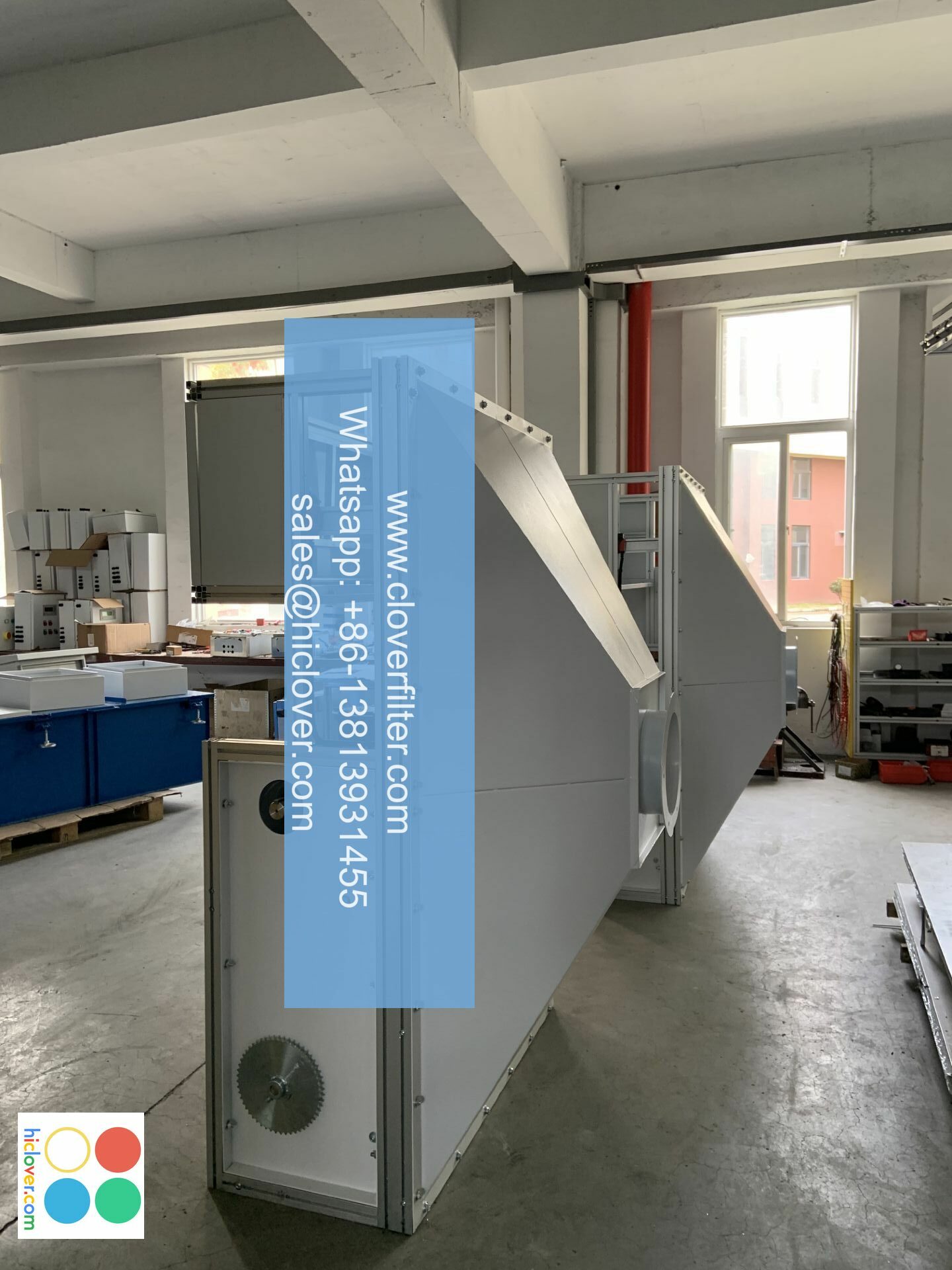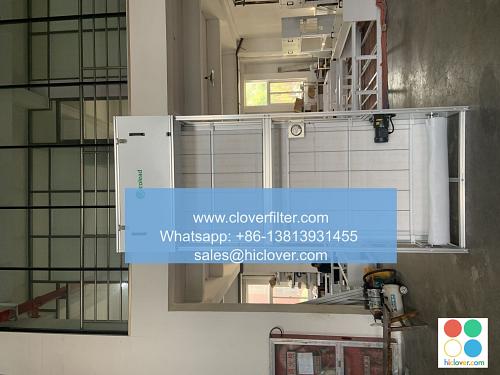A Comparative Study of Air Filtration Systems in Food Labs: Automatic Roll Air Filters and HEPA Filters

Air filtration systems play a critical role in maintaining the quality and safety of food products in laboratory settings. The presence of airborne contaminants such as dust, pollen, and microorganisms can compromise the integrity of food samples, leading to inaccurate test results and potential health risks. Two popular air filtration systems used in food labs are Automatic Roll Air Filters and HEPA (High Efficiency Particulate Air) Filters. This article aims to provide a comparative study of these two systems, highlighting their features, advantages, and limitations.
Automatic Roll Air Filters are designed to provide a consistent and reliable air filtration solution. These systems utilize a roll of filter media that is automatically advanced as it becomes dirty, ensuring a continuous supply of clean air. The filter media is typically made of a synthetic material that is capable of capturing particles as small as 0.3 microns. Automatic Roll Air Filters are often preferred in food labs due to their low maintenance requirements and ability to handle high air volumes. They are also relatively cost-effective compared to other air filtration systems.
HEPA Filters, on the other hand, are known for their exceptional filtration efficiency. These filters are designed to capture 99.97% of particles as small as 0.3 microns, making them an ideal choice for applications where ultra-clean air is required. HEPA Filters are often used in food labs that require the highest level of air purity, such as in microbiological testing and food safety analysis. They are also commonly used in cleanrooms and other controlled environments. One of the main advantages of HEPA Filters is their ability to capture particles that are smaller than those that can be captured by Automatic Roll Air Filters.
A key difference between Automatic Roll Air Filters and HEPA Filters is their filter replacement requirements. Automatic Roll Air Filters have a longer filter life, typically ranging from 6 to 12 months, depending on the application and air quality. HEPA Filters, on the other hand, require more frequent replacement, typically every 6 to 12 months, depending on the application and usage. This can result in higher maintenance costs for HEPA Filter systems. However, the improved air quality and reduced risk of contamination provided by HEPA Filters often outweigh the additional maintenance costs.
Another important consideration when selecting an air filtration system for a food lab is the system’s resistance to moisture and humidity. Food labs often involve the use of water and other liquids, which can lead to high humidity levels and moisture accumulation. Automatic Roll Air Filters are generally more resistant to moisture and humidity than HEPA Filters, which can be prone to water damage and reduced filtration efficiency in humid environments. However, some HEPA Filter systems are designed with moisture-resistant materials and coatings, which can mitigate this issue.
In conclusion, both Automatic Roll Air Filters and HEPA Filters have their advantages and limitations when it comes to air filtration in food labs. Automatic Roll Air Filters offer a reliable and cost-effective solution with low maintenance requirements, while HEPA Filters provide exceptional filtration efficiency and ultra-clean air. The choice of air filtration system ultimately depends on the specific needs and requirements of the food lab, including the type of testing being performed, the level of air purity required, and the maintenance budget. By selecting the right air filtration system, food labs can ensure the quality and safety of their products, while also maintaining compliance with regulatory requirements.
FAQs:
- Q: What is the main difference between Automatic Roll Air Filters and HEPA Filters?
- A: The main difference is their filtration efficiency, with HEPA Filters capturing 99.97% of particles as small as 0.3 microns, while Automatic Roll Air Filters capture particles as small as 0.3 microns but with a lower efficiency.
- Q: Which air filtration system is more suitable for food labs that require ultra-clean air?
- A: HEPA Filters are more suitable for food labs that require ultra-clean air, such as in microbiological testing and food safety analysis.
- Q: How often do Automatic Roll Air Filters and HEPA Filters need to be replaced?
- A: Automatic Roll Air Filters typically need to be replaced every 6 to 12 months, while HEPA Filters need to be replaced every 6 to 12 months, depending on the application and usage.
- Q: Are HEPA Filters resistant to moisture and humidity?
- A: Some HEPA Filter systems are designed with moisture-resistant materials and coatings, but they can still be prone to water damage and reduced filtration efficiency in humid environments.


